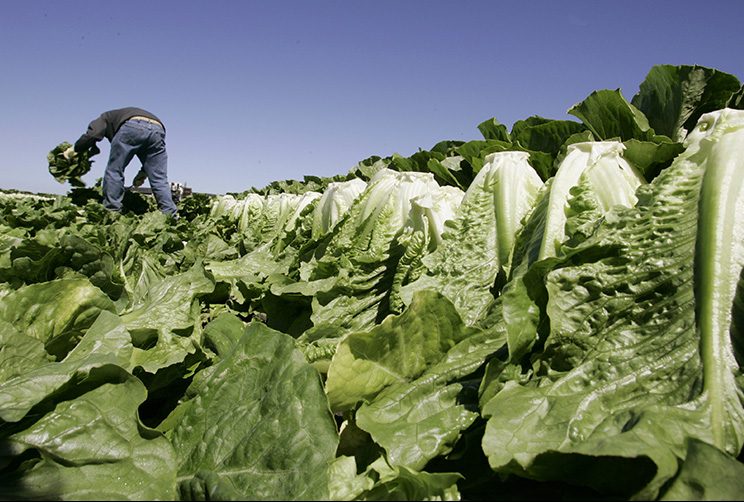An E. coli outbreak that has sickened nearly three dozen people in 11 states is linked to chopped romaine lettuce from Arizona, health officials said.
The Food and Drug Administration announced Friday that romaine lettuce grown in the Yuma region, near the border with Southern California, may have caused the recent outbreak of Escherichia coli. The agency said it has not identified specific farms or companies that grew, supplied and distributed the contaminated vegetables.
None of the 35 people who have become sick since the outbreak began last month have died. But 22, including three people suffering from kidney failure, have been hospitalized, according to the Centers for Disease Control and Prevention.
Health officials said these people became ill between March 22 and March 31; most of them reported that they ate romaine lettuce within a week before they became sick. Many said they ate salads with romaine lettuce at restaurants, and these businesses told health officials that they used store-bought chopped romaine lettuce.
The highest number of illnesses was reported in Idaho and Pennsylvania, with eight and nine cases, respectively. Seven were reported ill in New Jersey. The others were in Washington state, Missouri, Illinois, Michigan, Ohio, New York, Virginia and Connecticut.
Health and food safety officials are advising consumers who have store-bought chopped romaine lettuce, including prepackaged salad mixes, to throw the vegetables away even if they’ve been partially eaten. Restaurants and retailers should not serve or sell romaine lettuce grown in Yuma, officials said. An investigation is continuing, and no products have been recalled.
E. coli are a type of bacteria found in undercooked beef, raw milk, soft cheeses made from raw milk, raw fruits and vegetables, and contaminated water. Most E. coli bacteria are not harmful, but a type known as E.coli O157:H7 produces a toxin called Shiga, which destroys red blood cells, causes kidney failure and bloody diarrhea. Other kinds cause urinary tract infections, respiratory illness and pneumonia.
Send questions/comments to the editors.



Comments are no longer available on this story